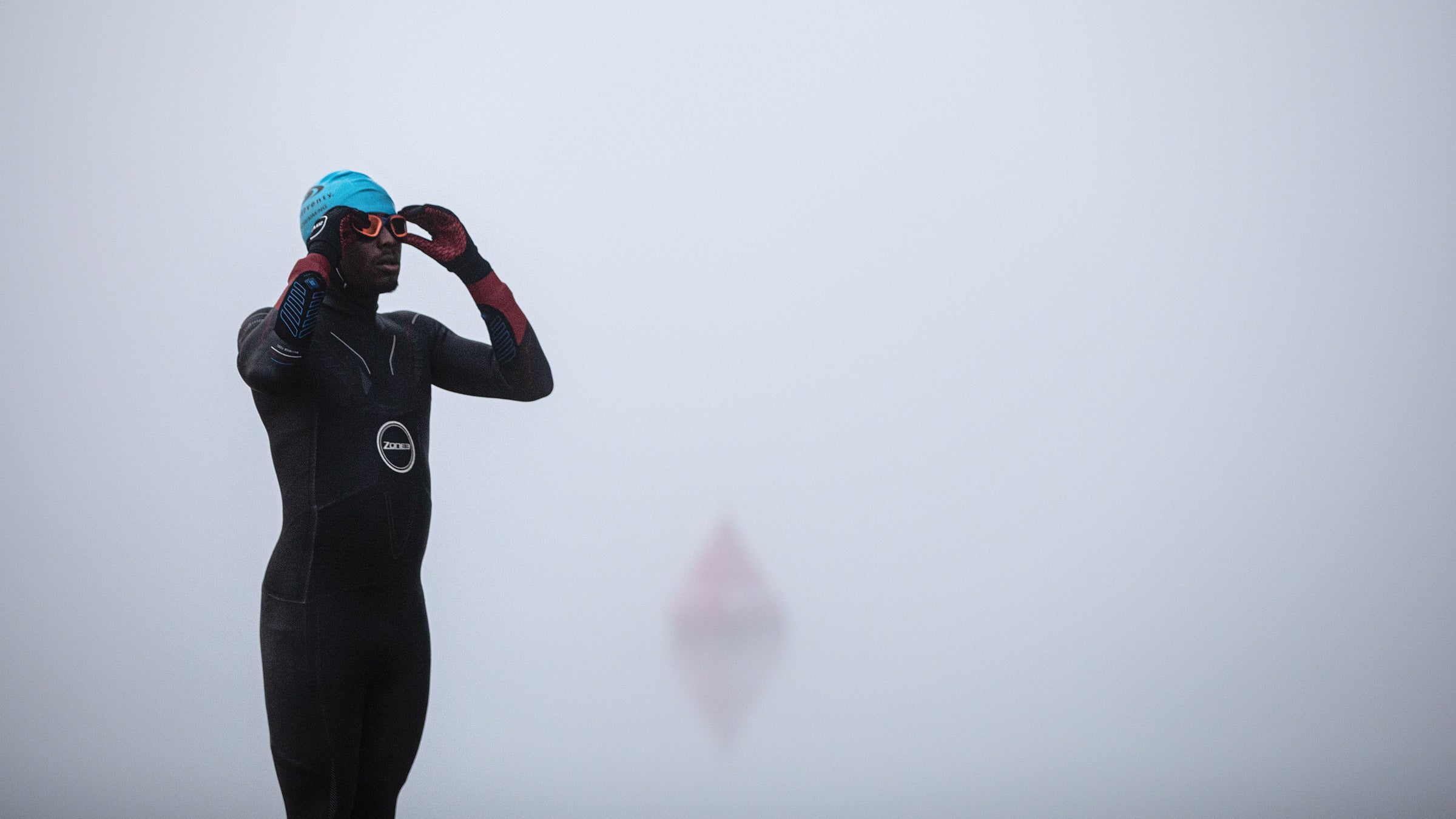Autism Isn't Stopping Sam Holness from Going Far (And Fast)

Sam Holness wants to become triathlon's first autistic pro. (Photo: courtesy of Hoka)
One day, during a bike workout, Sam Holness got doored. The now 28-year-old triathlete had finished loop three of seven, circling the park near his home in London, when the door of a parked car swung open and knocked him over. A passing cyclist helped him up, and Sam got back on his bike. But the crash broke his routine. Without giving it much thought, he started back at zero. Instead of 50 miles that day, he rode 70.
Sam may look like every other dedicated, tri-diehard, clocking 20-hour weeks and overdoing it on his bike miles, but he’s not. He’s autistic. When he crashes in his favorite video game, Mario Kart, he says he starts over. So that’s exactly what he did that day on the bike. He simply started the ride over.
While he’s wired differently than other triathletes, he’s using it to his advantage—as the words on one of his favorite t-shirts proclaim: “Autism is my superpower.” And with the help of that superpower, Sam wants to become triathlon’s first autistic pro.
Autism is a neurological condition that’s accompanied by traits such as strict adherence to routine, repetitive behavior, anxiety, social phobia, difficulty communicating, limited coordination, and weak motor skills—to varying degrees along what’s known as the spectrum, from mild to extremely severe. It means that the independence many people gain with experience and age isn’t a given for those with autism. It also means that Sam’s version of autism may be very different from someone else’s.
At age 6, Sam finally spoke. Even then, teachers cautioned his parents to temper their expectations. One school assumed Sam couldn’t swim and initially excluded him from swimming events. But his parents pushed back.
“We didn’t accept the perceived belief that Sam was going to underachieve,” said his dad, Tony. To the contrary, Tony figured that if his son had the dexterity to master computer games, then surely he could learn more. When he was 14, Sam—who had never been able to ride a bike despite his dad’s consistent, nearly decade-long effort—pedaled down the road. “It was the most remarkable thing,” Tony said. “Years of frustration for me as a dad. Bang! Like that he did it!”
Coaches need to raise their expectations of autistic athletes.
Sam defied naysayers again when he went to college, getting a degree in sports science that culminated in a dissertation on how coaches can better coach autistic athletes. His advice? Be patient. Speak slowly. Talk less and show more—something Sam still has to remind his dad, who’s now his tri coach. But most importantly, he said, coaches “need to raise their expectations of autistic athletes.”
In 2016, he raced his first triathlon. In 2019, he did his first 70.3. Although an all-too-common nutrition miscalculation sent him scrambling to the port-a-potty multiple times, he was thrilled. And hooked. The moment sparked a thought: Could he turn triathlon into a career?
To solve the problem of finding a coach familiar with autistic athletes, Tony became a certified Ironman coach. Sam upped his training to twice a day and added a nap that he calls his “Federer,” after learning about the sleeping routine of the famed tennis player. He eliminated gluten from his diet (which helped curb the IBS that’s common with autism), started daily yoga, and began working with running coach Andy Wren.
“Endurance athletes are notoriously terrible at doing their stretching and strength work,” Wren said. “But Sam isn’t. If it’s part of the plan, it’s part of the plan.” It’d be easy to ascribe his dedication to details to his autism, Wren said, but “I think there is an aspect to it which is just determination.”
With the upended 2020 race season, though, Sam hasn’t gotten the chance to prove himself yet. His training indicates promise. He’s at level 47 on Zwift (the highest level is 50). In February, he placed third in his age group in a virtual 70.3 with a time of 4:46. By 2022, he hopes to go sub-10 in an Ironman. Top on his list is qualifying for Kona.
The focus on longer distances was intentional. While autism helps Sam thrive on regimented training and repetitive tasks over long periods (such as biking 112 miles), it makes transitions hard. Removing his wetsuit takes longer. Finding the right rack for his bike in T2 can be confusing. Longer races reduce the stress because he can offset the extra seconds on the road, Tony said.
In the meantime, he was named to a 2020 British charity’s Power 100 List, which recognizes the most influential people with disabilities in the U.K. In December, HOKA brought him on as a global ambassador. He’s also been a virtual guest speaker (along with his dad) at nearly a dozen schools around the world.
He tells the kids the same thing he tells himself: “Don’t let autism or other people’s expectations limit you.” People often assume individuals with autism don’t want to be competitive, or don’t care about going fast. But that’s a myth—and it’s one Sam is ready to dispel one mile at a time.